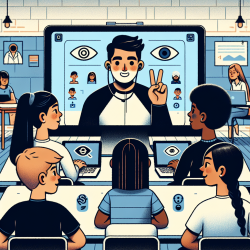Introduction
The COVID-19 pandemic has brought about unprecedented challenges and changes in healthcare systems worldwide. Among these, the impact on pediatric emergency departments (EDs) has been significant, particularly in the realm of poisonings. A recent study titled The effects of COVID-19 on poisonings in the paediatric emergency department sheds light on this issue, offering valuable insights for practitioners aiming to improve their skills and outcomes for children.
Key Findings
The study conducted at The Hospital for Sick Children in Toronto, Canada, utilized data from the Canadian Hospitals Injury Reporting and Prevention Program (CHIRPP) to compare pediatric poisoning cases before and during the pandemic. The findings were startling:
- Total poisonings increased by 122.5% during the pandemic.
- Unintentional poisonings rose by 127.8%, recreational drug use by 160%, and intentional self-harm poisonings by 104.2%.
- Notably, cases involving cannabis and vaping saw significant increases of 44.3% and 134.6%, respectively.
Implications for Practitioners
These findings underscore the need for healthcare practitioners to adapt and enhance their approaches to pediatric care during crises. Here are some strategies that can be implemented:
- Enhanced Surveillance: Utilize data-driven insights to monitor trends in pediatric poisonings and adjust care protocols accordingly.
- Public Health Education: Collaborate with public health agencies to educate communities about the risks of substance exposure, particularly in home environments.
- Child-Proofing Initiatives: Advocate for increased awareness and resources for child-proofing homes, especially during periods of lockdown or increased home confinement.
- Mental Health Support: Address the mental health needs of adolescents, who are at increased risk for intentional self-harm and substance use during stressful times.
Encouraging Further Research
While this study provides crucial insights, it also highlights the need for ongoing research. Practitioners are encouraged to engage in further studies to explore:
- The long-term effects of pandemic-related stressors on pediatric mental health and substance use.
- Effective interventions for reducing pediatric poisonings in various demographic groups.
- The role of technology and telehealth in monitoring and preventing pediatric poisonings.
Conclusion
The COVID-19 pandemic has reshaped the landscape of pediatric emergency care, presenting both challenges and opportunities for improvement. By leveraging data-driven insights and fostering collaboration among healthcare providers, public health officials, and communities, we can enhance outcomes for children and build a more resilient healthcare system.
To read the original research paper, please follow this link: The effects of COVID-19 on poisonings in the paediatric emergency department.










